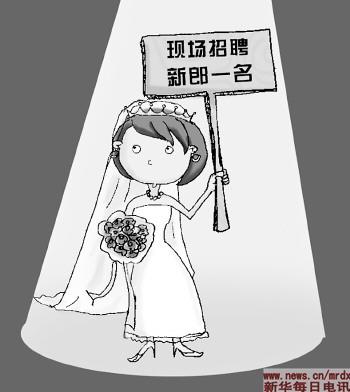 Shocking moments when PLA's weapons open fire
Shocking moments when PLA's weapons open fire Famous Lanzhou beef noodles
Famous Lanzhou beef noodles Armed Police hold anti-terrorism drill in SE China's Xiamen
Armed Police hold anti-terrorism drill in SE China's Xiamen Harbin Int'l Ice and Snow Festival opens
Harbin Int'l Ice and Snow Festival opens 'Jin' named the word of the year by cross-strait netizens
'Jin' named the word of the year by cross-strait netizens Chinese scientific expedition goes to build new Antarctica station
Chinese scientific expedition goes to build new Antarctica station
 Chinese naval escort fleet conducts replenishment in Indian Ocean
Chinese naval escort fleet conducts replenishment in Indian Ocean 17th joint patrol of Mekong River to start
17th joint patrol of Mekong River to start China's moon rover, lander photograph each other
China's moon rover, lander photograph each other |
| (Photo/Xinhua) |
Getting students through school quicker could help reduce the number of single people, according to a proposal from a southern lawmaker.
Huang Yanru, a member of the Guangdong Provincial Committee of the Chinese People's Political Consultative Conference, said one of the major reasons there are so many "leftover" men and women, (usually referring to single, urban and educated people older than 27) is the long period of getting educated.
"The long school system has made Chinese students graduate late and begin their work late, causing great pressure for them in falling in love, marriage and childbirth," Huang said.
In his proposal to the Second Session of the 11th Guangdong Provincial Committee of the CPPCC that opens on Tuesday, Huang suggests shortening primary school to five years, and junior and senior high school to two years each.
Currently, Chinese primary school is six years while junior and senior high school are another three years each.
"That indicates Chinese people usually begin to work at about the age of 22 when they have graduated from college, and that is too late for them to enter society," said Huang, who is also political commissar of the General Hospital of Guangzhou Military Command of the People's Liberation Army.
"Many people have become leftovers and find it hard to find their Mr Right and Miss Right after they finally have stable employment or build a decent career," Huang said.
"Shortening the school system would certainly help reduce the number of leftover men and women when young people begin to work and plan their future lives three years earlier," he told media.
China's university school system is usually four years, while Chinese kids usually start school at the age of 6 or 7.
The All-China Women's Federation used to identify men older than 30 and women above 27 as "leftover".
Huang said the average age for his hospital staff marrying is 29 for men and 27 for women.
The average age of a couple having a child at the hospital is 31 for men and 28 for women.
According to Chinese law, a man is allowed to tie the knot when he reaches 22 while a woman can get married when she turns 20.
Huang added that shortening the period of schooling to allow people to begin their work earlier would help build a harmonious society.
Zhang Yiri, an associate professor at Guangzhou City Polytechnic, said there is no problem shortening the school system as many teaching materials that are out of date can actually be withdrawn to help save educational resources and shorten the school system.
But another major problem might rise, Zhang added.
"The country's employment pressure will grow greatly when people can begin to work three years earlier," Zhang told China Daily. "And the country, which has a population of more than 1.3 billion, might be considering extending the ages for retirement," he said.
The Guangdong provincial department of education did not comment on Monday.
 In photos: Ten 'tuhao' devices in 2013
In photos: Ten 'tuhao' devices in 2013 College students saved from an ice hole by brave citizens
College students saved from an ice hole by brave citizens Gallery: Top 10 box office hits in 2013
Gallery: Top 10 box office hits in 2013 Beautiful churches around the world
Beautiful churches around the world Yang Mi, Hawick Lau hold wedding in Bali
Yang Mi, Hawick Lau hold wedding in Bali 'Phubbing' people seen everywhere
'Phubbing' people seen everywhere World's biggest snack shop in China
World's biggest snack shop in China Shocking moments when PLA's weapons open fire
Shocking moments when PLA's weapons open fire World's fastest train CRH380A assembled in E China
World's fastest train CRH380A assembled in E China Successful first 300-meter saturation dive
Successful first 300-meter saturation dive Fire burns down ancient town in Shangri-la
Fire burns down ancient town in Shangri-la Luxurious car adorned with coins
Luxurious car adorned with coins Female Chinese soldiers' 'brutal' training
Female Chinese soldiers' 'brutal' training Undie Run competition held in Nanjing
Undie Run competition held in Nanjing Advanced Chinese weapons that stepped into spotlight in 2013
Advanced Chinese weapons that stepped into spotlight in 2013Day|Week|Month